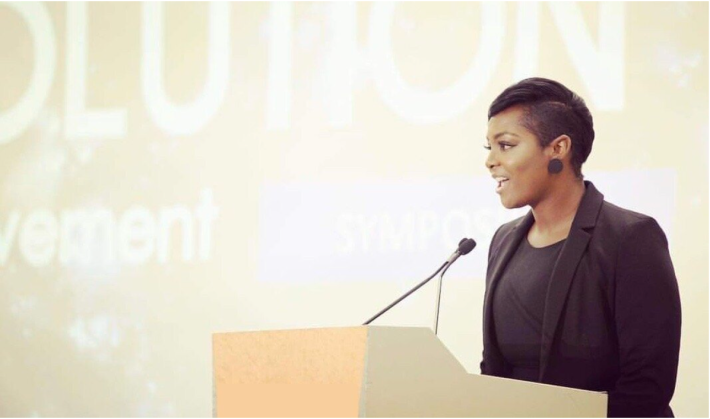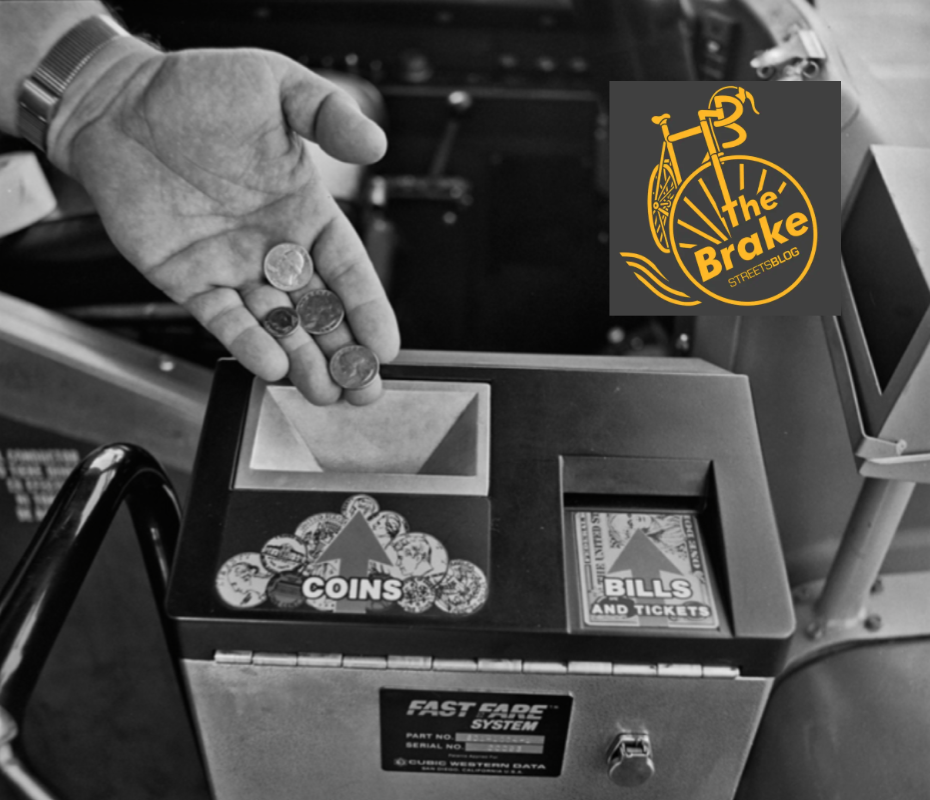Free transit pilots are popping up around the world as the pandemic rages on — and so are heated debates about whether they'll stymie agencies' efforts to delivery the high-quality service that U.S. riders need. But what if those arguments are missing something fundamental about why we charge people for basic mobility in the first place, and about how marginalized people are affected adversely when they can't afford a fare?
Today on The Brake, host Kea Wilson sits down with Dr. Destiny Thomas to unpack some common arguments against fare-free transit and talk about what our transportation system might look like if we treated mobility as a human right — and why only giving some people a free ride isn't enough.
Check out our conversation below, on Apple Podcasts, or anywhere else you listen. You can also learn more about the Thrivance Group, their past collaborations with Streetsblog, and the conviction of Raquel Nelson, which was referenced in the episode .
The following excerpt has been edited for clarity and length.
Wilson: Some of the most common arguments against free transit are that it doesn't actually reduce driving, or that it doesn't reduce emissions as much as we would hope. How do you respond to those questions?
Thomas: That argument is rife with with not just philosophical but also moral conflict.
I think the recent prioritization of climate change, like as a topic within transportation and urban planning spaces, is very similar to what we saw with the equity-washing that was happening for the last five to 10 years. Folks are using the term 'climate change' and not understanding what it means in the space that we work in.
We [at the Thrivance Group] use the term 'environmental racism,' because it assigns proper accountability to the systems and social incentives that resulted in the problems we see today when we're talking about the effects of climate change. And so the idea that free transit has to be ... a potential solution to climate change is a construct of inequity in and of itself, right? ... We need free transit because people can't afford it, because of how our societies have become rooted in capitalism and the monetization of basic needs and commodities. And that's a very different point of juncture.

Putting the burden on those who need subsidies to get around — [which is to say,] putting the burden of resolving our climate change crisis on people who are already suffering and struggling — I think that is morally disastrous.
And the other thing you have to remember is that those who are posing these arguments are used to having multiple options and multiple modes that they can access. So they're looking for a net positive outcome, right? [They're asking,] 'what's the solution that benefits us all at one time?' As opposed to asking themselves who's suffering the most, and who's been suffering the longest.
We use this word 'marginality' or 'marginalized' in the discourse around equity a lot. It's another word a lot of people don't really understand, by virtue of what it means to be on the margins. You're already not a populist group. I'm here on the margins compared to those who are not, folks who are centered. And so [aiming for] a net positive impact, in the name of benefiting people who are in the margins — it doesn't make sense. It's nonsensical.
You have to be willing to take approaches that are reparative for a small number of people who are just suffering, and we have to be okay with those measures not benefiting everyone at the same time.






